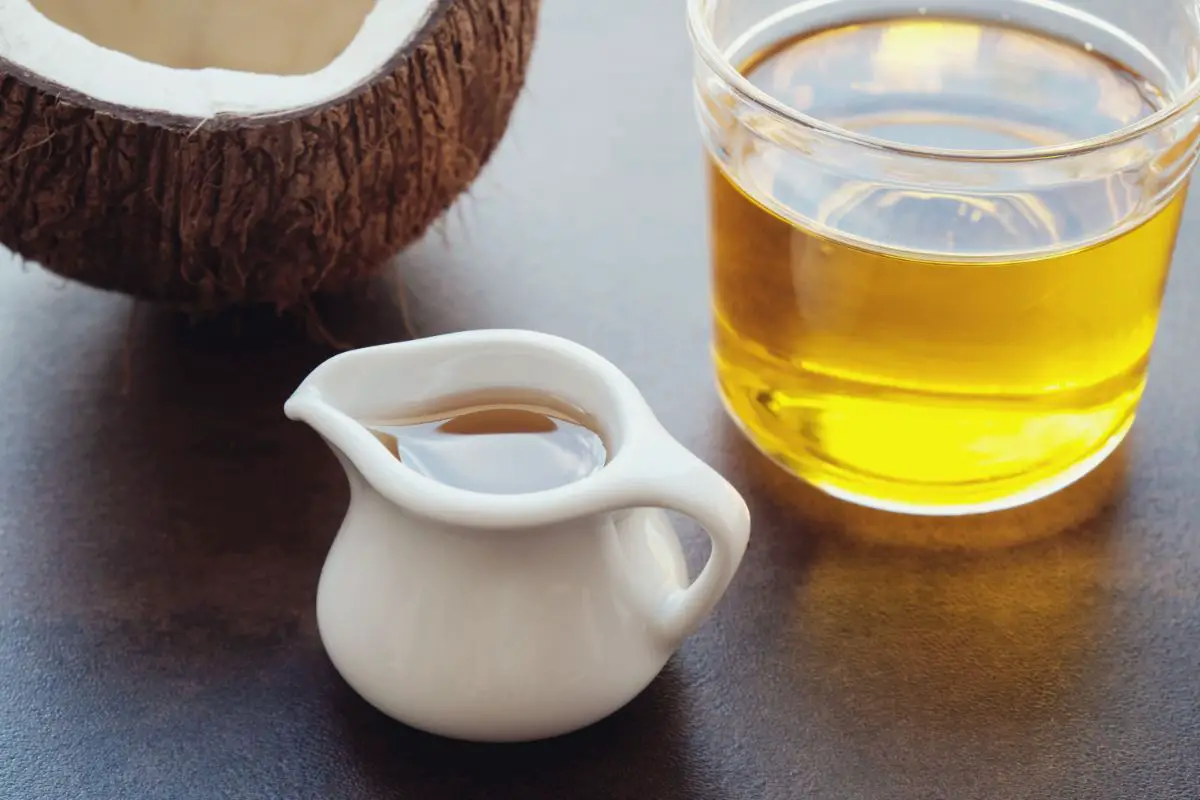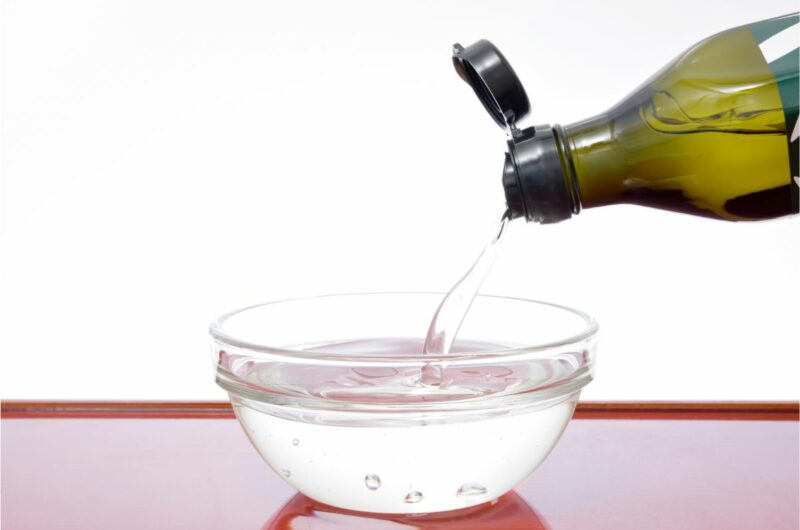You might not have heard of MCT oil before, so let us educate you. This type of oil is extracted from coconut oil and is a calorie-free alternative to oils like olive oil and sunflower oil.
MCT oil is naturally absorbed into the body and is converted into ketones, which are good for muscle building and fat loss.
You can also add this one to your existing food, such as a smoothie or a protein shake, which will then help you burn up plenty of fat. But what if you cannot easily get access to MCT oil? What other oils are available that are burned in the same way?
Well, we have done some searching on the internet and found some of the best options for you.
These oils are the closest in terms of texture and consistency and you can easily switch them with your normal MCT oil supplement (although they might not have the weight loss benefits).

What Exactly Is MCT Oil?
MCT stands for ‘medium chain triglycerides’ and is usually found in coconut oil. They are broken down in the body in a much different way to LCTs (long-chain triglycerides), being burned up in the body to create ketones.
Ketones are often produced in the liver, and they are made to help break down fat. They are often produced when the body is either in a fasted state, on the keto diet, or consuming reduced calories.
MCTs are also consumed by athletes so they can break down fat and burn it as energy. This is great fuel for both the brain and the body.
But what if you cannot find this oil anywhere in your local supermarket? Well, here are some alternatives that are very similar in terms of texture and taste, are much more widely available in the shops, and you can start cooking with right away.
4 Amazing MCT Oil Substitutes
1. Coconut Oil
Coconut oil is what contains the raw form of MCT oil, so why not get it in the most organic form that you can? Some athletes or gym-goers might prefer this type of coconut oil, as it contains a lot of other healthy nutrients and vitamins.
You can buy coconut oil in a solid form, which means that you might have to melt it before to start cooking with it. You will also have to cook it at a much lower temperature, as it has a tendency to burn.
Using coconut oil has been said to encourage fat burning, which is great if you are looking to shed those few extra pounds. This has quick energy-boosting properties, perfect if you want to hit the gym with as much force as possible.
However, one of the downsides of this is that coconut oil is very high in calories, so you’ll have to make sure that you are really committing to your workout if you are going to be consuming this at a higher volume.
2. Hemp Seed Oil
This is another great substitute for MCT oil, as it comes with a much higher burn rate and comes with plenty of omega-3 fatty acids and healthy fats.
Hemp seed is free from gluten, which means that it will not exacerbate any existing intolerances. It is a great source of vitamins A, E and D, making it great for joint and bone health.
This can be used in so many different ways, you can even put it in your shampoo and wash your hair with it!
This also comes with anti-inflammatory properties, which is great if you are experiencing wear and tear on your joints, and don’t want to take medication. You can use this as a supplement in a smoothie or you can drizzle it over your salad.
This has also been shown to lower your blood pressure, thereby reducing the chances of getting strokes and heart attacks.
3. Extra Virgin Olive Oil
Healthy cooking oils are hard to come by, but one of the best is extra virgin olive oil. This stuff is simply fantastic, not only is it very healthy, but it will help you reduce your overall cholesterol intake and increase your monosaturated fat levels, which is good news for your heart.
This olive oil has a much lower smoke point, which means that it won’t form any harmful chemical compounds when you heat it.
This is a natural compound that does not contain any harmful fats such as trans fats. This comes with all the benefits of MCT oil but without any drawbacks.
The bonus of this virgin olive oil is the flavor, and you can guarantee it will add plenty of deliciousness to your final meal.
This type of olive oil will also reduce inflammation, especially in the joints and in certain muscle groups. This is great if you have been experiencing a lot of pain in your joints but you want to avoid taking medication.
4. Fish Oils
Fish oils are a great source of good fatty acids, will help you with joint and brain health and will reduce the risk of heart disease. A lot of people take these as supplements, improving their overall mental health.
You can purchase this sort of fish oil in many forms, whether it is liquid or in a capsule form. You should really only take one of these capsules a day, although you can take smaller ones on a twice-daily basis.
This does not contain all of the benefits of MCT oil, but it is certainly a strong contender for second place when it comes to healthy oils.
One of the other drawbacks of this oil is the fact that you can’t really cook with it, as it will leave a fishy odor on your food. If you want an oil that you can use for cooking, then we would recommend that you get one of the supplements above.
Frequently Asked Questions
Why Would I Want An MCT Replacement?
Can I Take Palm Oil For MCTs?
Conclusion
We hope that our guide to MCT alternatives has helped you find one that will beneficial to you. Make sure that you get an oil that you can ingest safely and that it contains more benefits than negatives when taken in larger quantities.
4 Amazing MCT Oil Substitutes
Course: Sides4
servings30
minutes40
minutes300
kcalIngredients
Coconut Oil
Hemp Seed Oil
Extra Virgin Olive Oil
Fish Oils
Directions
- Decide on what substitute you need
- Pick a substitute from the list above
- Read what you need to substitute with
- Create the recipe and enjoy
Recipe Video
https://www.youtube.com/watch?v=tQxKHG2zcWoVideo can’t be loaded because JavaScript is disabled: The 15 Benefits of MCT Oil (Medium Chain Triglyceride) – Dr.Berg (https://www.youtube.com/watch?v=tQxKHG2zcWo)- What Exactly Do Chickpeas Taste Like? Is There A Distinct Flavor? - September 30, 2023
- Top 11 Low Carb Options at Sonic Drive-In for Keto Diet - September 30, 2023
- What Should You Serve Alongside Potato Salad? 8 Incredible Side Dishes - September 30, 2023











